Washington, D.C. – U.S. Senator John Curtis (R-UT), Chair of the Senate Environment and Public Works Subcommittee on Chemical Safety, Waste Management, Environmental Justice, and Regulatory Oversight, delivered the following remarks at a subcommittee hearing entitled, “Examining the Beneficial Use and Regulation of Chemicals.”
As prepared for delivery:
“Thank you, and welcome everyone to today’s subcommittee hearing on the impacts of the regulatory environment for new and existing chemicals, a subject that lies at the intersection of innovation, safety, and US competitiveness. I will let our Ranking Member introduce Dr. Woodruff in his opening remarks.
“Today, we will hear from both sides of the chemical equation, from Huntsman Corporation, represented by President and Chief Executive Officer, Mr. Peter Huntsman, and from Boeing, represented by Dr. Gwen Gross, Senior Technical Fellow in Composites and Chemical Technology and Chief Chemist. The two witnesses bring critical perspectives. Mr. Huntsman leads a company whose core business is the development of new chemistries that enable the deployment of safer, more efficient, and more effective products in the United States.
“Dr. Gross represents a major customer of those materials, an aerospace manufacturer whose ability to incorporate new chemistries into aircraft is essential to maximizing the safety and performance of aircraft and maintaining American competitiveness.
“Together, their perspectives embody the essential relationship between chemical manufacturers and their customers – those who depend on chemical innovation to drive American industry forward. Every day, American chemical manufacturers like
Huntsman invest billions of dollars in research and development to produce new materials that can reduce emissions, improve safety, and maintain U.S. industrial competitiveness. These new chemistries enable lighter, stronger, and more efficient products to reach the market – from cars to aircraft to medical devices.
“However, regulatory delays or ambiguities in the chemical approval process can stifle that innovation, forcing companies to move research overseas or abandon promising materials altogether. That’s not good for workers, consumers, or the environment. On the other end of the supply chain are manufacturers like Boeing, companies that rely on those new chemistries to build world-class products that meet the highest safety standards on earth.
“Dr. Gross and her team work every day to integrate next generation replacement materials into aircrafts, a lengthy approval process involving – in this example – EPA in addition to FAA or DoD. When the regulations guiding chemical approvals change faster than the relevant agencies can deliver the chemical approvals and certifications, companies like Boeing are caught in a difficult position, hamstrung by a process that may actually prevent safer or more efficient replacement chemicals from ever reaching final products.
“These regulatory bottlenecks can ripple across the entire aerospace supply chain, impacting thousands of suppliers and
hundreds of thousands of workers. Our challenge, therefore, is not whether to regulate chemicals, of course we must, but how to do so in a way that protects public health and the environment without stifling American innovation.
“We must ensure that our regulatory system keeps pace with modern science, supports collaboration between EPA and other relevant agencies, and gives both chemical manufacturers and their customers the certainty they need to invest, produce, and compete globally. America cannot lead in advanced manufacturing if our innovators do not have a chemical approval system that works.”
